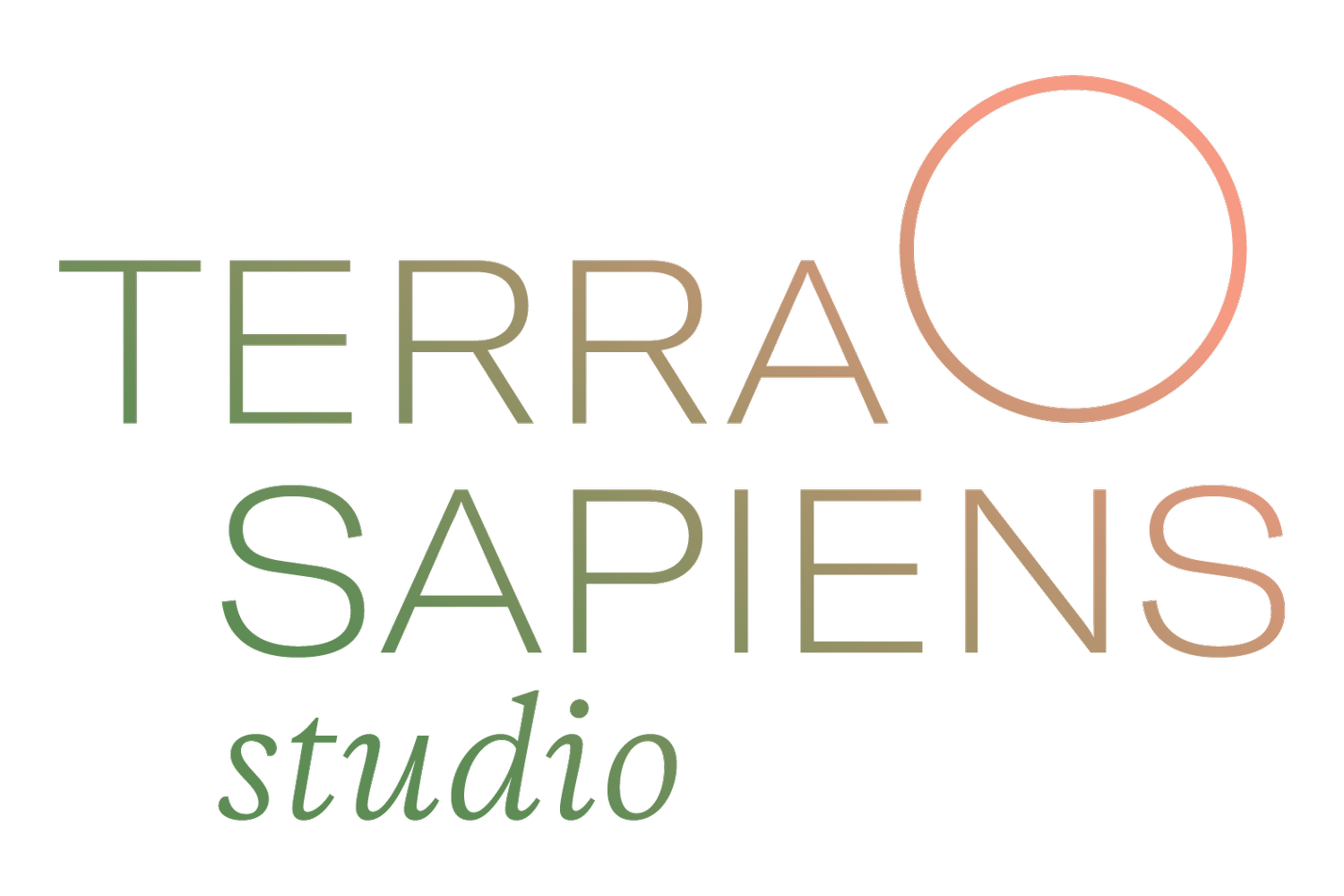
OUR STORY
The Terra Sapiens studio focuses on the artistic representations of positive futures that stem from the convergence of science, traditional indigenous knowledge, philosophy, art and design. We approach social and ecological challenges looking for solutions through a synergetic approach. The Terra Sapiens Project concentrates on creating cultural empathic narratives through art to engage and give purpose to our audience.
Terra Sapiens or “wise Earth” is a term coined by the Astrobiologist David Grinspoon Phd. His book Earth in Human Hands: Shaping Our Planet's Future was the igniting force in my journey as a creator for environmental impact. In his words: “ This is an Earth were we and the planet have both changed to come to grips with each other; where we’ve learned to live comfortably over the long haul with world-changing technology, applied with a deep understanding of planetary function; where intelligent and wise application of our engineering skills has become smoothly integrated into global processes. It’s a vision for the planet, but it’s also an aspirational name for ourselves, for who we must become to manifest this world”.
As human’s we’ve become a major influencing forces over everything that is living on this planet. Our role needs to become one of empathic stewardship to protect and care for all living creatures and ecosystems. Technology and our ingenuity as a species are enablers of a vision of the future in which we attain a healthy ecological balance and social wellbeing. But the true change will come from achieving a critical mass of people that believe that this is our way forward. the normalization of these narratives is our role as artists.
The goals of The Terra Sapiens Project are:
a) The representation of viable positive futures based on science, observational science (indigenous knowledge), design and art. We intend to put forward pathways that consider multi-solution approaches or system integration solutions that consider the afflictions of ecological and social environments (socio-ecological systems) as interconnected.
b) Showing relationships with nature determined by the intrinsic value of its existence instead of having a relationship solely based on its capacity for exploitation and benefits to humans outlined by ecological services research.
c) Decolonizing knowledge acquisition methodologies and problem-solving by using empathic listening towards the socio-ecological systems (environments) around us. Decolonizing methodologies require cultural groups in power to recognize their equal value in the ethnosphere and the ecosystem.
d) Research as action: the creation process will itself be a laboratory for implementing the values and principles that are the main subject of the work. Terra sapiens will be eco-responsible and sustainable, gender-balanced and diverse by using materials and processes that lower the impact on ecological and social environments.
e) The decolonization of the gaze through the inclusion of team members coming from diverse cultural backgrounds. The intended benefit will be to show the potential of "Inclusion" in finding multi-faceted and comprehensive solutions to artistic challenges and the project's visions.
f) The humanization of technology: Terrarium intends to show the importance of conceiving technology as a tool for empathy and well-being, as well as the importance of going beyond technocratic solutions to climate change. The inclusion of interactivity as a tool for creating engagement and empathy amongst the public.
g) Gender equality as essential to our society's evolution and that the inclusion of ontological female values such as compassion, empathy, nurturing, and community building is critical to achieving a sustainable and regenerative relationship with the environment.

